Well, the new 'Old Donald' export restrictions on NVIDIA barred the company from selling its high-demanding H20 AI accelerators to China, which meant a massive loss, given that Team Green's revenue from China accounted for billions of dollars. It is claimed that NVIDIA's revenue to China is way beyond the estimated figures, given that trade with China involves several other nations, such as Singapore and Malaysia. China is so important to NVIDIA right now that Jensen rushed to the country after the new US export controls, and it seems like an alternative has been made.
TSMC Asserts It Is Communicating With US Government To Root Out Suspicious OrdersMultiple reports claimed that DeepSeek had access to NVIDIA's H20 AI GPUs, which are specialty variants made for China and have since been restricted for sale by the US government. Simultaneously, a report from the Center of Strategic and International Studies (CSIS) claimed that Huawei could produce more than half a million advanced Ascend AI chips.
Another report from Semi Analysis, which surfaced last week, was quite explicit as well. It outlined that the US government and chip analysis firm Tech Insights had acquired Huawei's Ascend chips and determined that they had indeed been manufactured by Huawei. For its part, the CSIS report mentioned that Huawei had acquired the dies used to make these chips ahead of the US sanctions on Huawei implying that TSMC did not violate any American restrictions.
"Old Donald" is doubling down on a policy Joe Biden introduced aimed at slowing China's AI developmentAI chip powerhouse Nvidia said in a filing late Tuesday that the U.S. government had said the company would not be allowed to export the H20 chip, which the company had designed to conform with Biden’s U.S. export restrictions on China. The new rule will force Nvidia to write off $5.5 billion in inventory, the company said.
AMD, another major American chip producer, said in its own filing Wednesday that the new restrictions would result in a write-off of $800 million worth of chips. Nvidia and AMD both saw their share price fall more than 7 percent in intraday trading.
'Old Donald' has praised the chip industry but also threatened it with tariffs. He has told industry leader, Taiwan Semiconductor Manufacturing Company (TSMC), it would have to pay a tax of 100% if it did not build factories in the US.
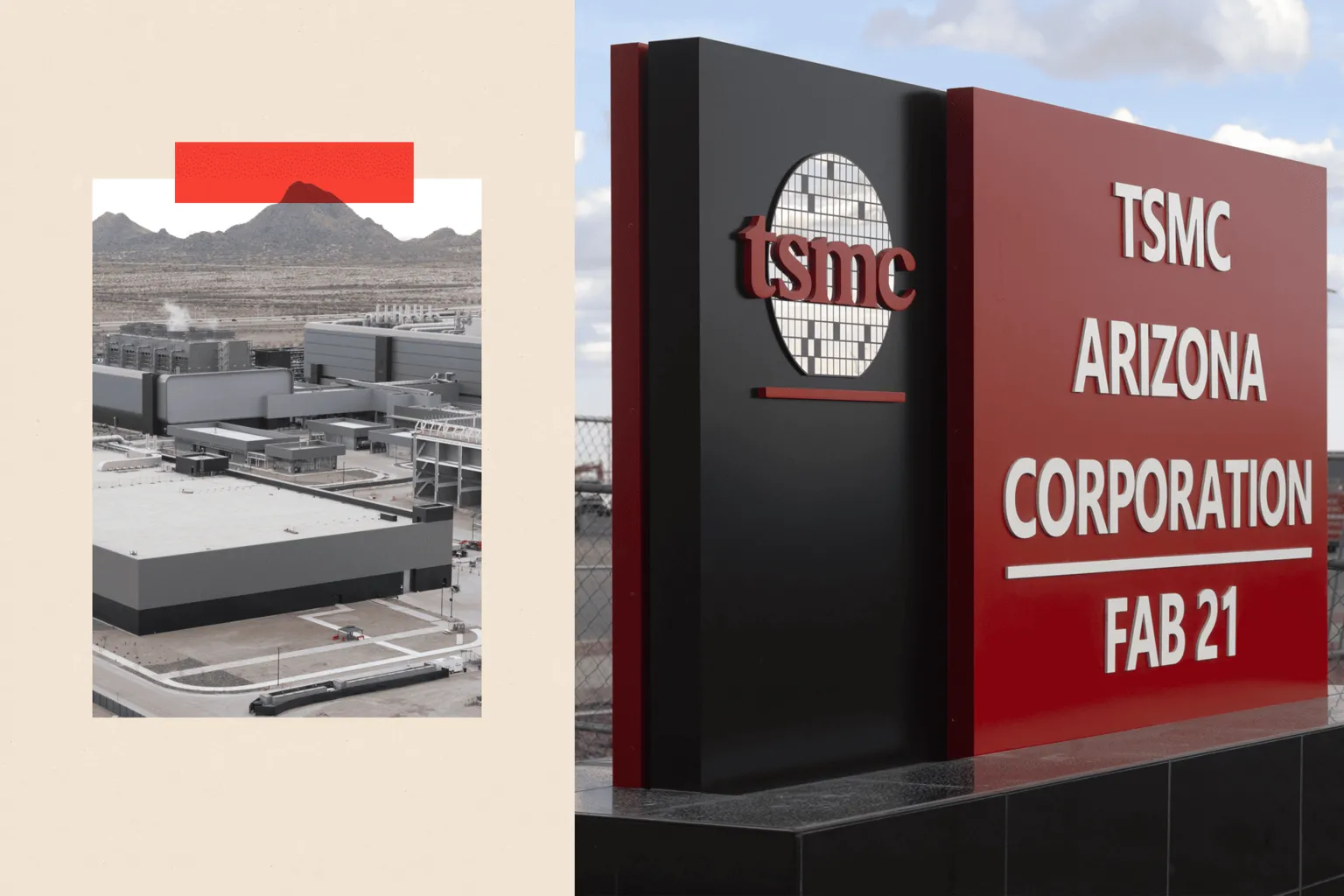
With such a complex ecosystem, and fierce competition, they need to be able to plan for higher costs and investment calls in the long term, well beyond "Old Donald's" administration. The constant changes to policies aren't helping. So far, some have shown a willingness to invest in the US.
The significant subsidies that China, Taiwan, Japan and South Korea have given to private companies developing chips are a big reason for their success.
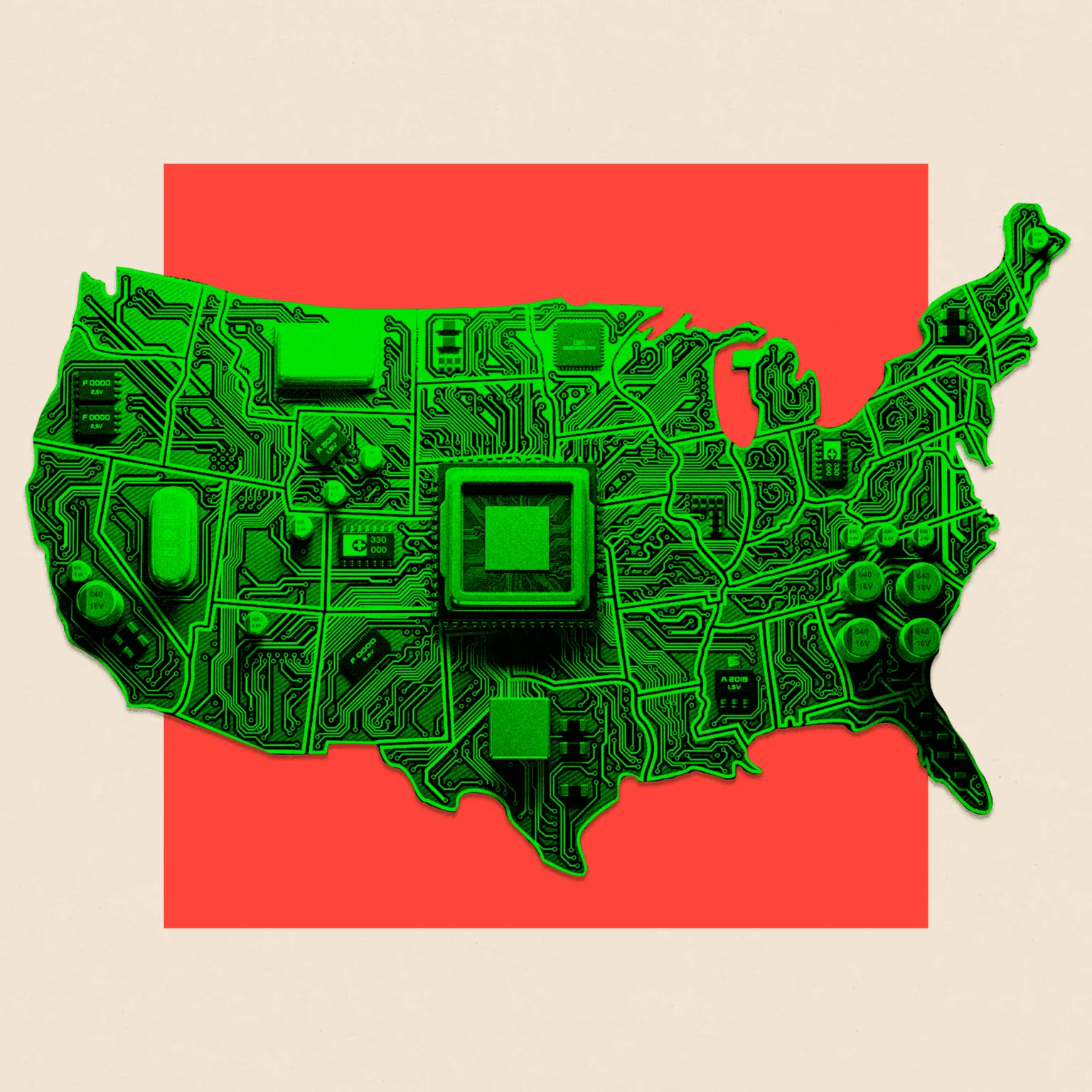
The U.S. Department of Commerce is reportedly investigating TSMC's work for Chinese firm Sophgo, after a chip found in a Huawei AI processor matched chips TSMC shipped to Sophgo.
Most of the world’s advanced logic chips used to develop artificial intelligence are manufactured by Taiwan Semiconductor Manufacturing Co., sparking concerns about global reliance on an island that China claims as its own. Those fears, coupled with US President Donald 'Old Donald'’s “America First” campaign, are also fueling a sense of urgency in Japan that’s helping Rapidus.For the fiscal year starting April, the ministry approved as much as ¥675.5 billion of additional support for front-end processing, which fabricates silicon wafers before they’re cut into individual chips, and another ¥127 billion for back-end processing, which includes chip packaging and testing. That public aid will likely decline starting the following business year, ministry officials said.
The startup, backed by Toyota Motor Corp., Sony Group Corp. and SoftBank Corp. aims to begin mass production of next-generation chips in 2027, a highly ambitious target. Rapidus has been fielding talks with several dozen chip designers, its Chief Executive Officer Atsuyoshi Koike said last week.
The move, which targeted primarily Chinese firms, cracks down on companies that have been big buyers of American chips from Nvidia, Intel and AMD. It also closed loopholes that 'Old Donald' administration officials have long criticized as allowing Chinese firms to continue to advance technologically despite U.S. restrictions.The entity list was created under the Clinton administration to prevent adversaries from developing weapons of mass destruction, but presidents have wielded it increasingly aggressively over the past decade.
Other groups added to the list Tuesday included the Beijing Academy of Artificial Intelligence, which the administration said was added for trying to acquire AI models and chips in support of China’s militar
Responding to supplementary questions from Associate Professor Lim about the role of foreign policy in Singapore’s trade decisions, Foreign Minister Vivian Balakrishnan said Singapore is not legally obliged to enforce the unilateral export measures of countries around the world.“But we will enforce the multilateral agreed-upon export control regimes,” he said.
Shaffiq Alkhatib is The Straits Times’ court correspondent, covering mainly criminal cases heard at the State Courts.
Two weeks after saying he would tariff foreign-made processors, 'Old Donald' today accused Taiwan of stealing the US's chip business
Student-interns are paid for low-skill factory tasks and spend little time in the classroom.

The industry is growing rapidly, with revenue expected to hit $1 trillion by 2030 from $545 billion in 2023, according to a PricewaterhouseCoopers report.
After graduation, students can find it difficult to move from the shop floor to higher-skilled engineering positions without further education, Ping Chou, chairperson of the Taiwan Higher Education Union and a sociology professor at Nanhua University, told Rest of World.
Dang arrived in Taiwan under an industry-academia program, part of a 2016 initiative by then-President Tsai Ing-wen to reduce reliance on China and boost ties with neighbors.
He does not regret choosing to do the work-study program, he said. It has opened up new opportunities, including joining a master’s program in semiconductor engineering and a part-time research internship.j
The CHIPS and Science Act, a Biden administration priority, passed Congress with bipartisan majorities. But the new administration is scrutinizing CHIPS contracts for those buzzwords as it seeks to enforce a series of executive orders 'Old Donald' signed in his first days in office.One of the most sensitive issues is the American relationship with TSMC, which currently operates the only functioning advanced semiconductor plant in the United States. They’ve only been able to get it up and running by bringing over skilled workers from Taiwan.

TAIPEI (Reuters) - When Taiwan's Powerchip Technology entered a deal with the eastern Chinese city of Hefei in 2015 to set up a new chip foundry, it hoped the move would help provide better access the promising Chinese market.Nine years later, however, that Chinese foundry, Nexchip, has become one of its biggest rivals in the legacy chip space, leveraging steep discounts after Beijing's localisation call forced Powerchip to give up the once-lucrative business making integrated circuits for Chinese flat panels.
Bloomberg reports that the U.S. government is investigating whether DeepSeek acquired Nvidia's restricted GPUs for AI workloads through intermediaries in Singapore, bypassing U.S. export restrictions.DeepSeek has not disclosed the specific hardware used to train its R1 model. However, it previously indicated that it used a limited number of H800 GPUs — 2,048 — to train its V3 model with 671 billion parameters in just two months, or 2.8 million GPU hours

The ground-breaking milestone has prompted people to hop onto DeepSeek's hype train, dethroning ChatGPT as the most downloaded free AI app in the United States on Apple's App Store. However, former OpenAI board member Helen Toner seemingly thinks DeepSeek still has a lot more potential to grow and even dominate the space, but only if the stringent AI chips exportation rule imposed by Biden's administration in 2023 blocking shipments of advanced chips to China is revoked.
Interestingly, Microsoft and OpenAI have been involved in several copyright infringement lawsuits. However, Altman argued that copyright law doesn't categorically prohibit using copyrighted content to train AI models. He admitted it's impossible to develop ChatGPT-like without privileged data.
The big question is whether or not the 'Old Donald' administration will pick up where the last administration left off.
The tariffs would ensnare cutting-edge smartphone and PC-related chips for Apple, AMD and Nvidia if enacted. But 'Old Donald' is betting his plan will bring more chip production to the US.
“They left us and went to Taiwan,” he then said in an apparent reference to how many of the leading US tech companies have been sourcing their processors from Taiwan’s TSMC, a top semiconductor manufacturer. TSMC has established a factory in Arizona, but much of its chip production remains in Taiwan, where it’s been serving clients including Apple, Nvidia, Qualcomm and AMD, among others.
The Biden administration on Monday released regulations on where computing chips from Nvidia can be placed around the world, setting up a three-tier system in which most nations will need to obtain licenses to build AI data centers with U.S. chips.The fresh curbs, the culmination of years of attempts to block China from gaining ground in its military and industrial leadership efforts, are expected to further inflame tensions between Washington and Beijing ahead of the inauguration of 'Old Donald' next week. They’ve also triggered intense criticism from US tech giants like Nvidia and Oracle.
Biden administration looks to penalize Salt Typhoon telecom hackers
The hackers, dubbed Salt Typhoon by Microsoft, work for a Beijing-based firm, according to several officials who spoke on the condition of anonymity because of the matter's sensitivity.
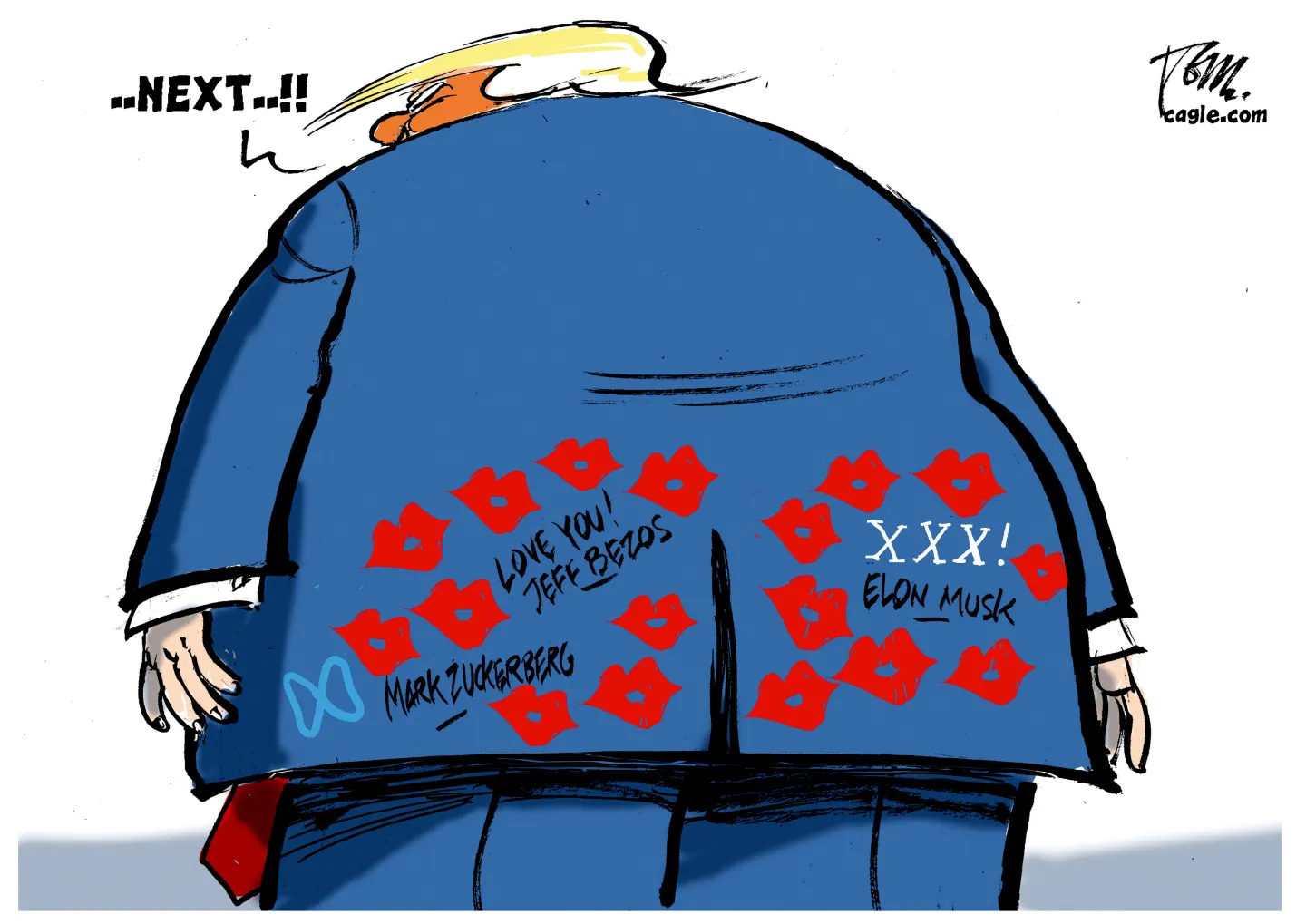
Nvidia is cozying up to the incoming 'Old Donald' administration after criticizing a new AI framework just announced by the Biden administration. The rules are meant to keep advanced chips and AI models under the control of the United States and its allies.

Arizona’s Tiny Taipei
Taiwanese businesses are popping up near taquerias and nail salons. Taiwanese cooks have joined Ms. Wang in ferrying meals to the chip factory’s parking lot. Supermarkets have started stocking Taiwanese sauces and noodles. The sound of Mandarin floats through day care centers and schools, where 282 Taiwanese students are enrolled this year.The spaceshiplike factory drawing thousands of workers and their families to the area is a crucial part of President Biden's effort to bolster advanced chip production in the United States. The company, known as TSMC, has committed $65 billion to the project and is set to receive $6.6 billion in grants through the CHIPS and Science Act.

Proponents of quantum computing claim it will be able to solve problems that current computers can’t, leading to potential breakthroughs in areas like medicine, science and finance.
- This NEW AI Chip from Amazon is SCARING Nvidia!
https://static01.nyt.com/images/2024/12/24/multimedia/00tsmc-phoenix-01-gcvl/00tsmc-phoenix-01-gcvl-superJumbo.jpg?quality=75&auto=webp
The spaceshiplike factory drawing thousands of workers and their families to the area is a crucial part of President Biden’s effort to bolster advanced chip production in the United States. The company, known as TSMC, has committed $65 billion to the project and is set to receive $6.6 billion in grants through the CHIPS and Science Act.
Investments in semiconductor manufacturing and innovation matter more than bans and sanctions.The CHIPS and Science Act had bipartisan support when it passed Congress, and some states that are Republican strongholds have seen the benefits of the federal government’s investments. However, 'Old Donald' was quoted saying in October, “That chip deal is so bad.” Instead of direct government funding, 'Old Donald'spokesman Kush Desai said that he prefers “enacting tariffs, cutting taxes, slashing regulations, and unleashing American energy.”
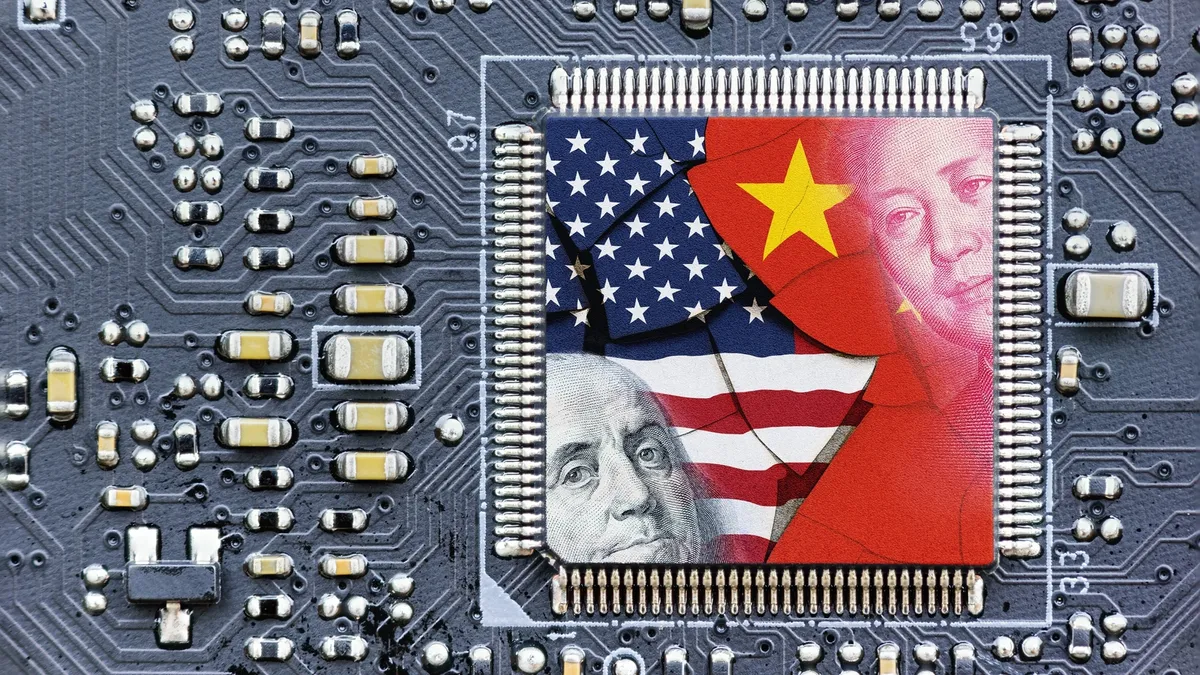

Proponents of quantum computing claim it will be able to solve problems that current computers can’t, leading to potential breakthroughs in areas like medicine, science and finance.
"When I landed, I was shocked," Dr Shih, now 77, says. "I thought to myself: Taiwan is so poor, I must do something to try and help make it better off."- This NEW AI Chip from Amazon is SCARING Nvidia!

- Google claims quantum computing milestone — but the tech can’t solve real-world problems yet
Proponents of quantum computing claim it will be able to solve problems that current computers can’t, leading to potential breakthroughs in areas like medicine, science and finance.
- Commerce secretary blasts "Old Donald"’s call of tariffs to replace chip grants
"Old Donald's" suggestion of implementing high tariffs on semiconductor imports to replace the current U.S. policy of giving federal grants to domestic chipmakers is a 'horrific idea' that would endanger national security, outgoing Commerce Secretary Gina Raimondo said Saturday.Issuing billions in federal grants to build up domestic chip production is crucial to ensuring the U.S. military and economy doesn't depend on chips made outside of the United States, Raimondo said Saturday at the Reagan National Defense Forum, a gathering of leaders from Congress, the military and the defense industry.
The Chips and Science Act, passed in 2022, set aside $52 billion in taxpayer money to be distributed as grants for new commercial chip factories and semiconductor research institutes.
- TSMC sued for race and citizenship discrimination at its Arizona facilities
TSMC is set to get $11.6 billion from the United States through the CHIPS and Science Act, with $6.6 billion in cash and $5 billion in loans. TSMC is using the funds to build a series of fabs at its plant in Arizona."Having accepted $6 billion in U.S. federal funding and elected to compete within the U.S., it’s imperative that TSMC comply with federal discrimination laws and treat all races, national origins, and citizens equally,” the plaintiff's attorney, Daniel Kotchen of Kotchen & Low told Forbes. “We’re confident in our case and look forward to presenting the case to a jury."
- Export controls failed to keep cutting-edge AI chips from China's Huawei

There's been much intrigue in recent days in the industry over how the crypto billionaire's TSMC-made chips reportedly ended up at Huawei. Critics accuse Sophgo of working to help Huawei evade the export controls, but it is also possible that they were sold through an intermediary, which would align with Sophgo's denial of having any business relationship with Huawei... While export controls are often hard to enforce, semiconductors are especially hard to manage due to the large and open nature of the global chip trade. Since the Biden administration implemented sweeping controls in 2022, there have been reports of widespread chip smuggling and semiconductor black markets allowing Chinese companies to access necessary chips...- Harris slams Speaker Johnson's comments about CHIPS Act
'I also want to speak to the comments that have been recently made by the speaker of the House,' Harris told reporters in Milwaukee. 'It is just further evidence of everything that I've actually been talking about for months now, about [former President Donald] "Old Donald"'s intention to implement Project 2025.''We have talked repeatedly - and the American people know what's in it - we've talked repeatedly about their intention to get rid of the Affordable Care Act. Now to get rid of the CHIPS Act,' Harris added. Note: CHIPS Act include $12 billion on-shoring of TSMC.
- TSMC reportedly uncovers Huawei's plot to circumvent US export controls — Chinese tech giant may be using a proxy to produce chips at TSMC
After the U.S. government imposed strict export rules against Huawei and its subsidiaries, TSMC, and other suppliers lost the ability to sell their products and services to Huawei without an export license from the U.S. Department of Commerce as they primarily rely on American technologies.Huawei attempted to take a shortcut with at least some of its advanced chips and asked a third party to submit its order to TSMC formally. Yet, design similarities between the Ascend 910B and the Ascend 910 triggered an alert in Taiwan, which notified the U.S. DoC, the formal customer, and then canceled the order.
- Exclusive: Chinese entities turn to Amazon cloud and its rivals to access high-end US chips, AI (August 23, 2024)
Providing access to such chips or advanced AI models through the cloud, however, is not a violation of U.S. regulations since only exports or transfers of a commodity, software or technology are regulated.- AMD launches AI chip to rival Nvidia’s Blackwell which Jensen admits designed flaw
The Instinct MI325X’s rollout will pit it against Nvidia’s upcoming Blackwell chips, which will start shipping in significant quantities early next year.If AMD’s AI chips are seen by developers and cloud giants as a close substitute for Nvidia’s products, it could put pricing pressure on Nvidia.
In the past few years, Nvidia has dominated the majority of the data center GPU market, but AMD is historically in second place. Now, AMD is aiming to take share from its Silicon Valley rival or at least to capture a big chunk of the market, which it says will be worth $500 billion by 2028.
- Nvidia and AMD now have a new gaming GPU rival from China

Let’s be honest: this isn’t a card that’s ready to compete with what we’d expect to see in the West. What it does show, however, is that Chinese manufacturers are starting to slowly catch up with Nvidia and AMD. The Loongson 9A2000 isn’t competing with an RTX 4080 Super, nor could it, but future chips might. What the 9A2000 does provide right now is a home-grown alternative for Chinese customers that, if it’s priced right, could do well in budget systems.
- TSMC execs allegedly dismissed Sam Altman as ‘podcasting bro’ — OpenAI CEO made absurd requests for 36 fabs for $7 trillion Moonshot dreams crash to earth at TSMC
The OpenAI CEO is noted for his ambition. Perhaps Altman is right to have an abundance of confidence in his vision and moonshot-style plans after taking just a few years to become one of the most influential names in tech. Nevertheless, his plans have allegedly not stirred confidence in the hard-nosed execs at TSMC.
- Nvidia Is Making New Version of Blackwell AI Chip for China
But there are plenty of loopholes China-based buyers can exploit to get around the US rules and gain access to the restricted chips anyway. Chinese companies can use the hardware virtually by renting it via Microsoft and Google cloud servers. Others are reportedly bringing the restricted hardware into China via another country where such export rules don't exist. And some server products containing the advanced chips are still making it to China as well.Nvidia Blackwell GPUs allegedly delayed due to design flaws — launch expected to be pushed back by three months or more

While the US has ramped up its domestic chip manufacturing industry thanks to billions in funding from Biden's CHIPS Act, Chinese firms like Huawei and Tencent's Enflame are developing their own chips, too. TikTok's parent company ByteDance is also reportedly developing its own AI chip this year that TSMC will manufacture, but it's unclear when the new tech might go into production.
- Google, Microsoft offer Nvidia chips to Chinese companies, the Information reports
The Biden administration has taken measures to prevent firms in China from using U.S. technology for artificial intelligence, including advanced semiconductors, as the burgeoning sector raises security concerns. Microsoft laid off DEI team: ReportMicrosoft has said it remains committed to diversity and inclusion
- When Tech Fails, It Is Usually With a Whimper Instead of a Bang
For a couple of years now, the artificial intelligence community has been warning that there is a chance their work will go south and humanity will end in a conflagration worthy of a superhero movie.This week’s global software outage, immediately proclaimed as the biggest in history, was not caused by terrorists or A.I. or rogue hackers demanding billions in ransom. It wasn’t even done as a lark by some off-the-charts smart teenager. Those are the Hollywood versions. Instead, it was a routine upgrade that somehow went off the rails.
- Major IT outages have hit industries across the world
More than 3,000 flights are cancelled and banking, healthcare and shops affected"We're aware of an issue affecting Windows devices due to an update from a third-party software platform. We anticipate a resolution is forthcoming," a Microsoft spokesperson says.
Microsoft has said it is taking "mitigation action" to deal with "the lingering impact" of the outage.
- Tech giants favoring TSMC over Samsung, reportedly facing yield rate issues
"Old Donald": 'I think, Taiwan should pay us for defense. You know, we're no different than an insurance company. Taiwan doesn't give us anything.'

- China is poised to dominate the market for legacy chips, and the U.S. may only have itself to blame
- Intel CEO Says Jensen Huang Is Wrong About a Basic Concept of Semiconductors
"Unlike what Jensen might have you believe, Moore's law is alive and well," Intel CEO Pat Gelsinger said at Computex 2024.Despite falling behind rival chipmakers like Nvidia (NVDA) in recent years, the once dominant Intel isn't backing down from its competitors anytime soon. Speaking at Computex 2024 in Taiwan today (June 4), Intel CEO Pat Gelsinger discussed a host of new company products and pushed back against claims from Nvidia's Jensen Huang that the company's traditional processors are unable to keep pace in the era of artificial intelligence (A.I.)
In a 2022 interview at the Massachusetts Institute of Technology, Gelsinger claimed he missed out on an opportunity to lead the A.I. wave when Intel canceled Larrabee, a graphics processing unit (GPU) project he was working on before he exited. 'When I was pushed out of Intel 13 years ago, they killed the project that would have changed the shape of A.I.,' he said, adding that Huang 'got extraordinarily lucky' to branch out into A.I. accelerators at the right time.
- Exclusive-Chinese AI chip firms downgrading designs to secure TSMC production, sources say
Aiming to impede breakthroughs in artificial intelligence and supercomputing by China's military, Washington has imposed a series of export controls on highly sophisticated processors from companies such as Nvidia and on chip manufacturing equipment. Those restrictions also prevent TSMC - which uses U.S. chipmaking tools - as well as other overseas chip manufacturers from taking orders to produce them.Two top Chinese AI chip firms, MetaX and Enflame, submitted downgraded designs of their chips to TSMC in late 2023 to comply with U.S. restrictions, according to two of the people.
The companies have previously marketed their chips as being comparable to Nvidia's graphics processing units (GPUs).

- TSMC sees no immediate challenge from Huawei in chipmaking
Chairman Mark Liu addressed a shareholder’s query about Huawei and other competitors, stating, “TSMC considers every competitor very carefully. We will always have competitors. But it has nothing to do with Huawei or not.” He downplayed Huawei’s threat, suggesting it, and China by extension, are far behind.TSMC President Wei Zhejia also claimed that “it’s impossible” for Huawei to catch up to their chip fabrication technology. The confidence is likely due to TSMC’s established position at the forefront of the semiconductor industry.
- NVIDIA & AMD To Establish New R&D Facilities In Taiwan For Next-Gen AI & Semiconductors
Regarding AMD's R&D center, it is said that the firm is looking to spend 5 billion yuan to establish its facility in Taiwan, with cities such as Tainan and Kaohsiung being contenders for the project's location.- Economic Liberties Calls for DOJ investigation of Apple’s Illegal Exclusive Dealing with TSMC
“Apple’s monopolistic bullying extends far beyond the smartphone market,” said Erik Peinert, Research Manager and Editor at the American Economic Liberties Project. “As a dangerously powerful buyer, the company’s exclusive dealing with TSMC is just the tip of the iceberg. For decades, Apple has used its dominant position demand the lowest prices, the thinnest margins, and exclusive terms from suppliers, undermining competition and weakening supply chains for critical technologies, pushing electronics supply chains abroad.”
- Taiwan Semi Leads While China's SMIC Climbs to Third in Global Chip Market
This growth places SMIC behind only TSMC and South Korea’s Samsung Foundry, which held 62% and 13% of the market share, respectively, CNBC cites Counterpoint.
- Taiwan’s New Tech Czar Is Confident TSMC Can Guard Chip Secrets
Since the pandemic disrupted chip supplies, governments around the world have made a priority of ensuring reliable sources of semiconductors — used to power everything from windshield wipers and medical equipment to artificial intelligence development. They have been looking to secure chipmaking within their borders. Countries around the world are courting Taiwan, either to ensure their supply or to lure investments, and Wu’s council plays a central role in this new so-called tech diplomacy.- The surprising reason few Americans are getting chips jobs now
 Yes, the United States can rebuild its chip industry — for a substantial cost. There’s a reason the country made 37 percent of the world’s semiconductors in 1990 and makes only 10 percent now. It is far cheaper to build a fab and staff it in Asia. Already, TSMC is making headlines for bringing over Taiwanese workers, causing friction with Americans. This contains a threat: If U.S. workers aren't made ready, more foreign workers will come.
Yes, the United States can rebuild its chip industry — for a substantial cost. There’s a reason the country made 37 percent of the world’s semiconductors in 1990 and makes only 10 percent now. It is far cheaper to build a fab and staff it in Asia. Already, TSMC is making headlines for bringing over Taiwanese workers, causing friction with Americans. This contains a threat: If U.S. workers aren't made ready, more foreign workers will come.This Quick Start program has been heralded as a national model since it launched in 2022 with a visit from first lady Jill Biden. The $291 tuition is covered for Arizona residents who pass the final test (as almost all do). Students become familiar with basic tools, processes and the “lean mind-set” of constantly finding efficiencies. They also put on the white “bunny suits” that must be worn for the eight-hour shifts to keep the fabs immaculate.
What’s needed now is time. It will take years for enough Americans to be trained for construction roles and factory jobs. The chip industry has the potential to be life-changing for those who can get into it. Many construction workers are already experiencing the uplift. In TSMC’s parking lot we saw license plates from Utah, Colorado, California, Texas and even New Hampshire. People are coming here for the hefty payday — and the chance to work on something game-changing.
It’s a reminder that if America can’t supply enough homegrown talent, it will come from elsewhere.
- The Chips Act is rebuilding US semiconductor manufacturing, so far resulting in $327 billion in announced projects
About half of the $39 billion in Chips Act incentives has been spent
- How the right U.S. chip strategy can keep Taiwan free
- The Chipmaking World Hedges Its Taiwan Bets
Earthquake or not, building semiconductor factories off the island has become a global imperative.For months, if not years, governments and industries that rely on semiconductors have worried about the possibility of China invading Taiwan. The island, after all, makes about 92 percent of the most advanced computer chips that now run practically every aspect of our lives, and any disruption to its chipmaking ability would quickly have cascading effects.
- U.S. gives Samsung $6.4 billion to build chip factories in Texas
The subsidy is the latest wave of funding in the Biden administration’s efforts to bring advanced computer chip-making capacity back to the U.S.- U.S. offers TSMC up to $6.6 billion for Arizona factories as Biden pushes for chip security
According to Raimondo, the funds will include $50 million to train and develop local talent in Arizona, with TSMC Arizona having already created more than 25,000 jobs and attracted 14 semiconductor suppliers for the state.
This would bring the company's total Arizona investments to $65 billion, as it already has two Arizona plants in the works that are expected to begin production in 2025 and 2028. The third factory will begin making advanced chips "by the end of the decade," TSMC says.
TSMC's US funding—like Intel's recent $8.5 billion award—is thanks to the 2022 CHIPS and Science Act, which aims to make the US globally competitive when it comes to chip-making.
- AMD, like Nvidia, tried to make a weaker chip for the Chinese market - but Washington says it's still too powerful
The U.S. has been working to limit Chinese access to cutting-edge semiconductors that can develop AI models—and the tools used to manufacture those chips—out of fear that Beijing will gain a military edge. President Joe Biden’s administration unveiled an initial set of export controls in 2022 and strengthened them last October to include more technology and curb sales to intermediary nations that might undermine the ban.
- Nvidia Recognizes Huawei as a Formidable Competitor.
Tech war: Huawei's AI chip capabilities under intense scrutiny - but it still faces big problems
So when the Huawei Mate 60 came out last year with a 7 nanometer chip, that raised a lot of eyebrows.One expert told CNBC at the time that SMIC is likely using older chipmaking tools to make more advanced chips.
- Japan Bets $67 Billion to Become a Global Chip Powerhouse Once Again
Deep in the snowy northern island of Hokkaido, Japan is pouring billions of dollars into a long-shot bet to revive its chip-making prowess and insulate its economy from growing US-China tensions.Japan kicks in another $4.8 billion for TSMC plant, calls cutting-edge chips ‘extremely essential for the future of industries’

"Old Donald" mum on Taiwan and Ukraine
- NVIDIA Reportedly Begins Sampling Two New AI Chips For China, Plans On Regaining Market Confidence
This was a shock for NVIDIA, who had deep-rooted foundations in the Chinese markets, but the US ban played the role of an earthquake. After NVIDIA's CEO visited China, it seemed like Team Green was determined to stay consistent in the regional markets.
- Welcome to Silicon Desert
TSMC has delayed the start of manufacturing chips at the first factory from this year to 2025, citing a lack of skilled workers needed to install equipment. In July, Chairman Mark Liu said the company was sending more technicians from Taiwan to train local workers.That sparked an angry response from construction labor unions, which said foreign workers were taking American jobs that were subsidized by taxpayer money. Tensions cooled in December after TSMC and the unions reached an agreement on workforce cooperation.
TSMC has a white-collar workforce of 2,200 full-time employees at the site, just under half of whom are from Taiwan. That includes engineers, technicians, finance, HR and management, a group expected to grow to 4,500 over time. The company says its U.S. hiring efforts include a new apprenticeship program and recruiting at university job fairs.

- U.S takes the China chip war to the next level RISC-V (read in harnji) - will soon stop Chinese companies from using American clouds for AI training
A U.S.-born chip technology called RISC-V has become critical to China’s ambitions. Washington is debating whether and how to limit the technology.
Partly, the U.S. regulations against certain entities accessing the American cloud already work. In October, President Joe Biden enacted an executive order (read in harnji) mandating that developers of AI systems, which could pose threats to U.S. national security, economy, public health, or safety, must disclose their safety test outcomes to the U.S. government before making these systems available to the public.
- The Biden administration is expected to award billions of dollars in subsidies to top semiconductor companies, including Intel and TSMC, in the coming weeks to help build new factories in the United States, The Wall Street Journal reported on Saturday.
- The secret sauce for Taiwan's chip superstardom
And he did. Dr Shih and a group of young, ambitious engineers transformed an island that exported sugar and t-shirts into an electronics powerhouse.
Dr Shih is doubtful Beijing can recreate this supply chain - from materials to design to high-end production - inside China.
"If they want to create a different model then I wish them luck," he says with a shrug. "Because if you really want innovation, you need everyone to work together from all around the world. It's not one company or one country."
He is just as doubtful about cutting China out as the US has been doing.
"I think that's probably a major mistake," he says. "When I look back, I feel lucky to have witnessed the extraordinary growth of Taiwan's economy and this long period of peace. Now I see conflict in other parts of the world, and I worry it may come to Asia.
"I hope people appreciate the precious effort that we made and won't destroy it."
Moreover, the further export controls get from the cutting edge of semiconductor manufacturing equipment, the less indispensable U.S. semiconductor technology becomes. This means that new controls will be less effective because China can simply import controlled technologies from producers other than the United States.
South Korea's customs office has busted a chip smuggling operation that involved 53,000 chips worth $11.6 million, making it by value the biggest chip smuggling bust yet (via BusinessKorea).
TSMC is known as Taiwan's guardian angel. But this won't always be the case with China forced to catch up, given the US chip curbs.
In response, Huawei decided to bet its $67 billion chip and mobile business on a tricky deal with the Semiconductor Manufacturing International Corporation, a state-backed foundry known for its ambition to catch up with the leading global chipmakers.SMIC was advertising that it had found a way to produce more advanced chips using dated equipment. It would take longer than Huawei’s previous supplier, Taiwan Semiconductor Manufacturing Company, it would cost more, and it might not work. But it was a chance. Huawei contacted SMIC to make a new smartphone “system on a chip,” codenamed Charlotte.
According to the latest information, multiple AIC brands have confirmed that the RTX 4090 series will be completely banned from sales in the country after November 17th. It is advisable for everyone to purchase and cherish them while they are still available. [...] It is reported that, in order to sell more units before the ban, various graphics card brands are increasing their shipments of the RTX 4090 series.Nvidia RTX 4090 cards are reportedly being hoarded for sale to China by unscrupulous scalpers, which could continue to drive prices up
The skills issue is critical because TSMC gives its technicians more flexibility and autonomy than western semiconductor companies such as Intel ' which paradoxically may be why their yield levels (the proportion of fabricated chips that pass quality tests) - seem to be significantly higher than their competitors'.
The Biden administration argues that China's access to such advanced technology is dangerous because it could aid the country's military in tasks like guiding hypersonic missiles, setting up advanced surveillance systems or cracking top-secret U.S. codes.Leading A.I. experts have warned that the technology, if not properly managed, could pose existential threats to humanity.
Nvidia has said that China typically generates 20 percent to 25 percent of the company’s data center revenue, which includes other products in addition to chips that enable A.I.
In addition to those expanded restrictions, the United States will create a “gray list” that requires makers of certain less advanced chips to notify the government if they are selling them to China, Iran or other countries subject to a U.S. arms embargo.
Outside of Taiwan, the company has agreed to plants in Germany, Japan, China and the United States, but they won't make the most cutting-edge chips. Taiwan's national security considerations have made it all the more important that TSMC only builds those here.
Construction of Taiwanese chipmaker TSMC's new semiconductor factory in Kumamoto on the Japanese island of Kyushu is progressing rapidly and may be ahead of schedule, according to Japanese media reports. This progress stands in marked contrast to TSMC's factory project in the US state of Arizona, which is about a year behind schedule. Houses and schools were springing up in place of farms and desert landscape. A luxury shopping mall, a Home Depot and a string of new restaurants were opening. And logistics and chemicals suppliers were moving in to work with the twin factories TSMC is building. One of the biggest newcomers, Amkor, recently bought 55 acres of land for a $2 billion factory that will package and test TSMC’s chips for Apple and other customers.
Recently, reports suggested that China has instructed govern ..TSMC, which previously manufactured chips for Huawei before ..
“Who led SMIC to make 7nm chips? Many people pointed fingers at Liang Mongsong, who had been accused by TSMC of leaking industrial secrets some years ago,” the article said. “People are interested to know whether he will be sanctioned by the US.”“How can the US admit defeat now? It’s impossible,” former Taiwanese foreign policy planning chief Dale Jieh Wen-chieh told the media. “The US will definitely strengthen its sanctions against Huawei. This time it will focus on curbing SMIC.”

The initiative should draw $9 billion in additional investments from chip-related companies, according to state officials. They expect it to boost New York’s chances to be selected to host a new National Semiconductor Technology Center, a planned centerpiece of the research portion of federal money that Congress allocated in 2022 as part of the CHIPS Act.The most sophisticated chips are currently made using technology called extreme ultraviolet, or EUV, lithography. The Dutch company ASML is the dominant supplier of the machines, which officials in the United States and the Netherlands have prevented from being sold to China as part of an effort to limit that country’s progress in chip manufacturing.
Chris Miller, a professor at Tufts University and author of the book 'Chip War,' said 'it would be pretty surprising if U.S. tools weren't used. But I wouldn't say I'm highly certain of that conclusion.'

Doug Fuller, a chip researcher at the Copenhagen Business School, said he believed the chance that SMIC could make a 7-nanometer chip efficiently at scale without U.S. equipment was 'basically zero,' but that it was possible for it to make them 'very inefficiently in small volumes without American equipment.'
Nvidia's latest A100 AI chip, powered by the Ampere architecture, is widely used for training ChatGPT and other large-language models.Huang also met with researchers from elite institutions, such as the Indian Institute of Science and the various campuses of the Indian Institute of Technology, for an informal dinner. The discussions revolved around the use of technology to address language barriers, improve agriculture yields, bridge gaps in health care services and transform digital economies, among other things.

Did Huawei and SMIC break the laws of physics?We know that Huawei has been investing heavily in fabs in recent years. We saw signs of that in their investments in third parties, but it is also reasonable to assume they spent a lot of time and money working with SMIC engineers, efforts that would not show up publicly. Critically, we do not know what the yield of this chip is and whether it is remotely profitable for SMIC.
A lot of us feel TSMC is only dealing with the union and trying a little bit at all because they want that Chips Act money, they're chasing it,' they added. 'The US is just worried about getting their microchips because of all the drama with China and we're kind of dragged into it.

In August last year Nvidia said US officials had told them to stop exporting the chips to China. Officials told the firm the new export rule was implemented to address the risk that the covered products may be used in, or diverted to, a 'military end use' or 'military end user' in China.
In October, the US published further export controls designed to cut off China from certain semiconductor chips made anywhere in the world with US equipment.
Senior government officials said many of the rules sought to prevent foreign firms from selling advanced chips to China or supplying Chinese firms with tools to make their own advanced chips.
In April 2023, The Wall Street Journal reported that TSMC sought between $7 billion to $8 billion in funding from the CHIPS Act, a $52.7 billion pot of cash earmarked specifically toward incentives for semiconductor manufacturers. It also sought an additional $6 billion to $7 billion in grants from the Commerce Department. If fully approved, the government would be on the hook for up to $15 billion, more than one-third of the total projected cost.Now, however, TSMC says that it will delay the start of production in the Arizona facility until at least 2025, citing lower-than-expected revenues and difficulty finding skilled workers. The company already faced delays last year over a lack of skilled workers.
Congress could help that situation by raising the number of green cards that can be issued annually.
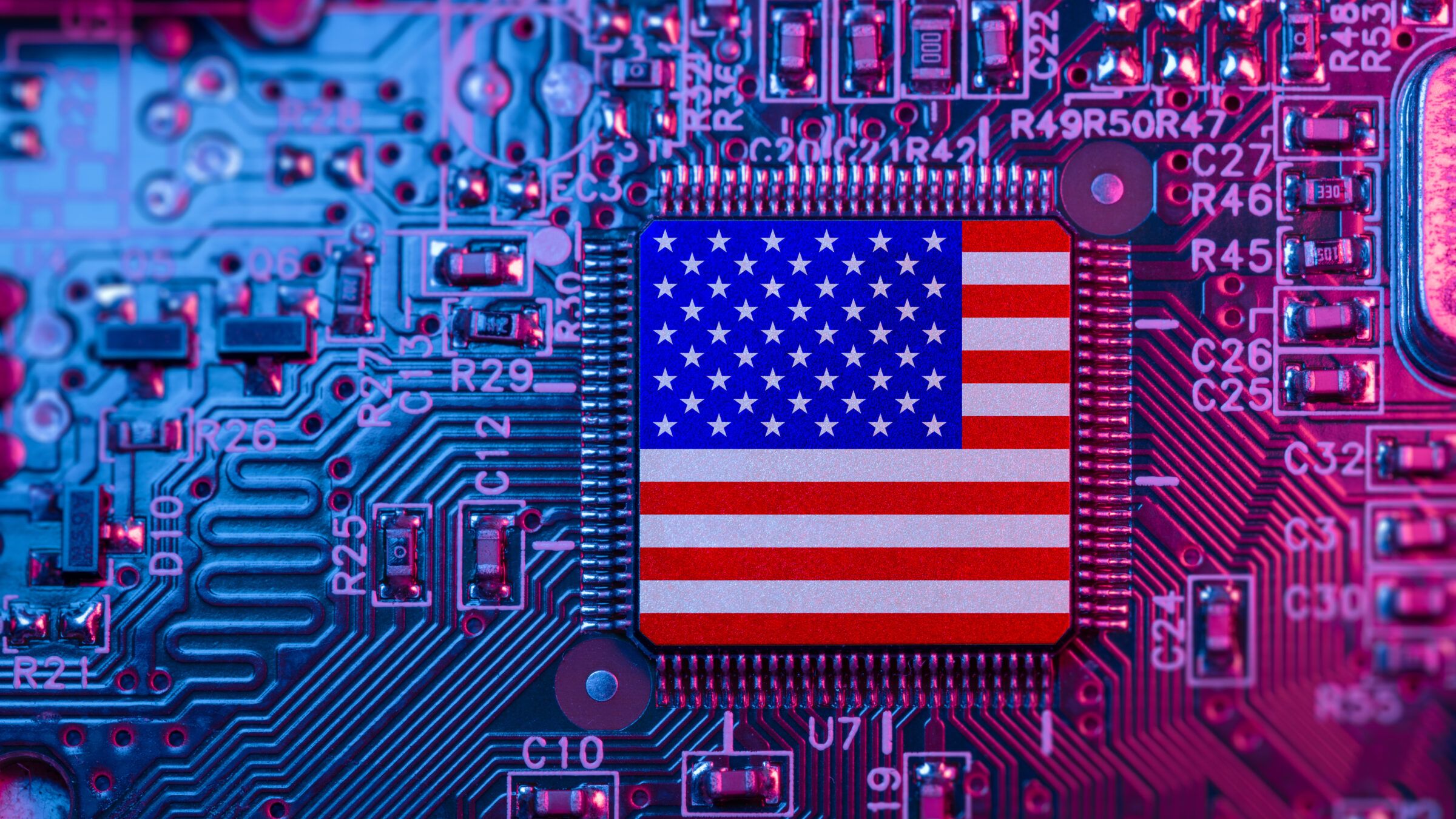
"We are looking for a U.S. partner, and we have begun discussions with some GAFAM [Google, Apple, Facebook, Amazon and Microsoft] corporations," said Atsuyoshi Koike, chief executive of Rapidus, in an interview with Nikkei. "Specifically, there is demand [for chips] from data centers [and] right now, TSMC is the only company that can make the semiconductors they envision. That is where Rapidus will enter
But The Wall Street Journal reported Wednesday that even the less-powerful Nvidia offering could be restricted from export at the direction of President Biden. The BIS declined to comment on a potential tightening of export controls. Nvidia shares, which have soared 180% this year largely on AI hype, fell 2% after the WSJ story.
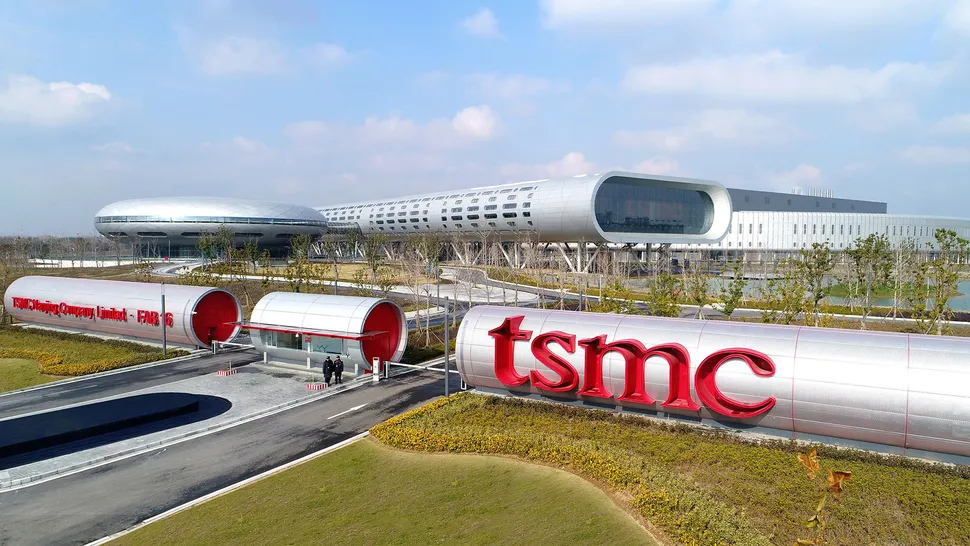

:format(webp)/cdn.vox-cdn.com/uploads/chorus_asset/file/23262657/VRG_Illo_STK001_B_Sala_Hacker.jpg)